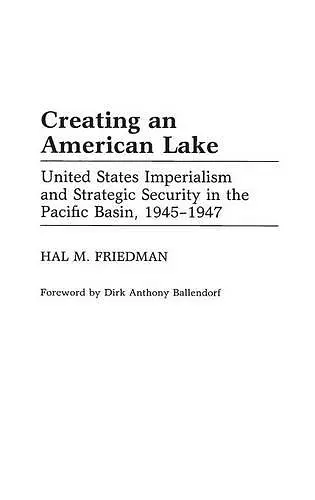Creating an American Lake
United States Imperialism and Strategic Security in the Pacific Basin, 1945-1947
Format:Hardback
Publisher:Bloomsbury Publishing PLC
Currently unavailable, and unfortunately no date known when it will be back

Many historians of U.S. foreign relations think of the post-World War II period as a time when the United States, as an anti-colonial power, advocated collective security through the United Nations and denounced territorial aggrandizement. Yet between 1945 and 1947, the United States violated its wartime rhetoric and instead sought an imperial solution to its postwar security problems in East Asia by acquiring unilateral control of the western Pacific Islands and dominating influence throughout the entire Pacific Basin. This detailed study examines American foreign policy from the beginning of the Truman Administration to the implementation of Containment in the summer and fall of 1947. As a case study of the Truman Administration's Early Cold War efforts, it explores pre-Containment policy in light of U.S. security concerns vis-a-vis the Pearl Harbor Syndrome. The American pursuit of a secure Pacific Basin was inconsistent at the time with its foreign policy toward other areas of the world. Thus, the consolidation of power in this region was an exception to the avowed goal of a multilateral response to the policies of the Soviet Union. This example of national or strategic security went much further than simple military control; it included the cultural assimilation of the indigenous population and the unilateral exclusion of all other powers. Analyzing traditional archival records in a new light, Friedman also investigates the persisting American notions of a Westward moving frontier that stretches beyond North American territorial bounds.
Hal Friedman, in his detailed study of U.S. military policy in the Pacific in the same time period, has rendered an important service to historians of the Cold War and of the U.S. international activities . . . [F]riedman shows how even innocent motives can and did lead to imperialist control over indigenous peoples of the Pacific and how it heightened rather than defused global conflict. * Peace & Change *
[T]his is an impressive book. The research is extensive. The bibliography, fifteen pages long, is an important source for the specialist. Students and experts on the cold war, the Pacific region, and strategic studies will profit from reading it. * The International History Review *
This book is well written, exhibits solid research, and offers a cohesive intrepretation of American policy in the postwar Pacific. For the specialist, and particularly for the graduate student studying American foreign relations and military policy, Creating an American Lake is worth the time. * The Journal of Military *
ISBN: 9780313313011
Dimensions: unknown
Weight: 567g
256 pages